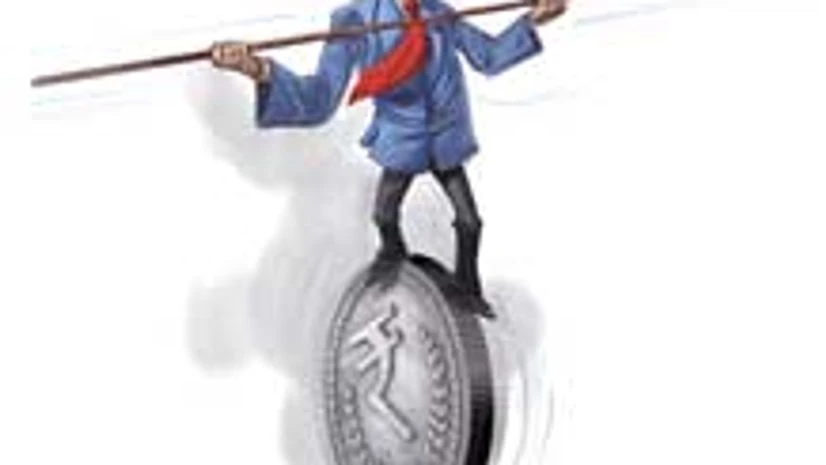The key question in the market is what will the falling rupee take down with it. A fall in rupee has increased bond rates making it costlier both for the government as well as corporates to borrow.
Markets are indicating the biggest stress will be in the banking sector, naturally too as the cumulative stress of corporates will have to be borne by banks. Further, liquidity squeeze and higher short term interest rate will impact profitability of banks more than those of corporates.
A strategy report by IIFL titled ‘The End Game’ says that net debt levels of 749 companies (non-banks and non-finance companies) have risen by 4.9 times over the last six years. The report has identified 10 companies with a debt to equity of 2.5 times having a total debt of Rs 374,300 crore.
Along with the high level of debt, the worrying fact is that the ability of companies to service it has come down sharply. Since 2007, the net debt to equity of these 749 companies has increased from 0.33% to 0.6%. The ability to service debt measured by interest coverage ratio has fallen from 10.5 times to 4.6 times. Interest expenses now account for 49.6% of the net profit as compared to only 16% earlier.
The report has a table of 30 companies whose market capitalisation (value that the market is giving the company) is lesser than the net debt in their books. In other words, even by selling the companies, their debt cannot be repaid. Falling rupee and rising interest rates will only increase the stress of these companies.
While public sector banks are the ones who have the most exposure to these companies, a look at the shares that have fallen after the clearance of Food Security Bill are the ones where FIIs were heavily invested, especially in banks and finance companies like HDFC Bank, HDFC and IDFC. Whatever little hope they were clinging on to has been eroded with Sonia Gandhi’s pet project. Their exit is already having its impact felt on the rupee.
Worse still, it signals their complete loss of faith in Indian economy, at least till a new set of people make things better. But the ‘likely’ new sets of people are moving around like headless chickens criticising the bill in front of media, yet voting for it in the parliament. More than the ruling government, it is the likely replacement that has let these investors down.

)
